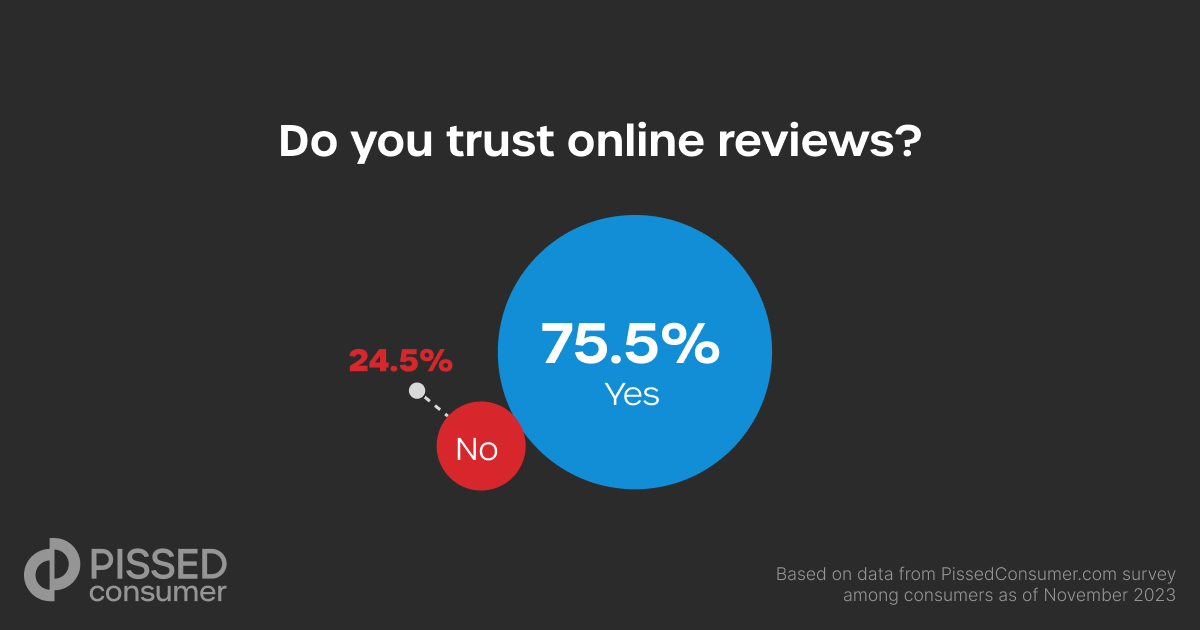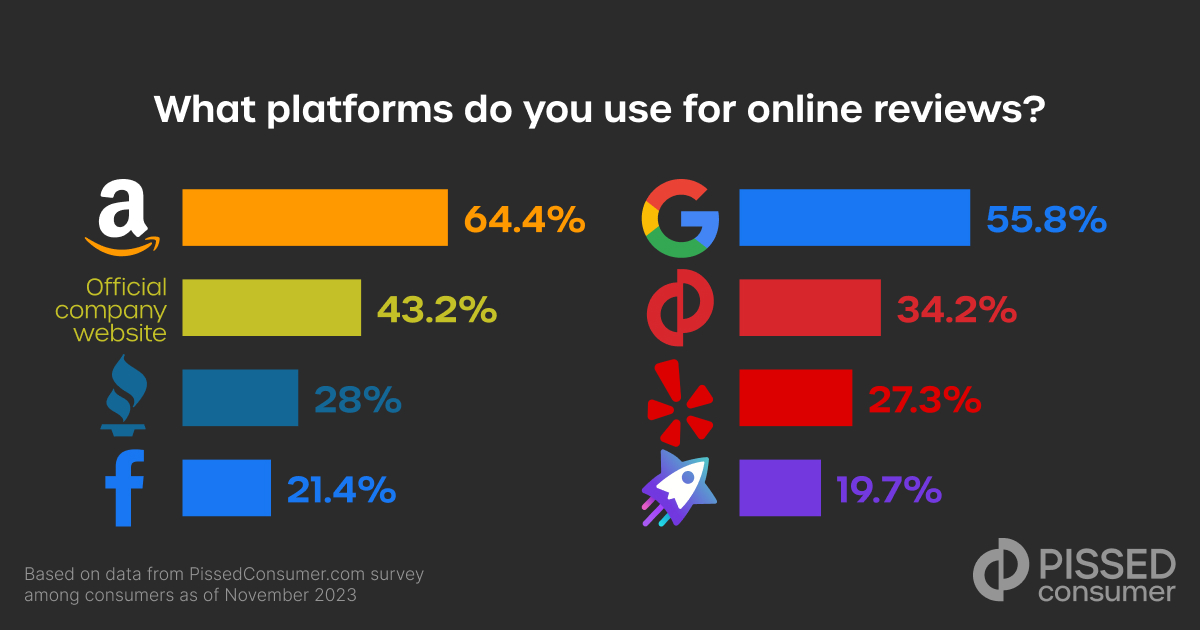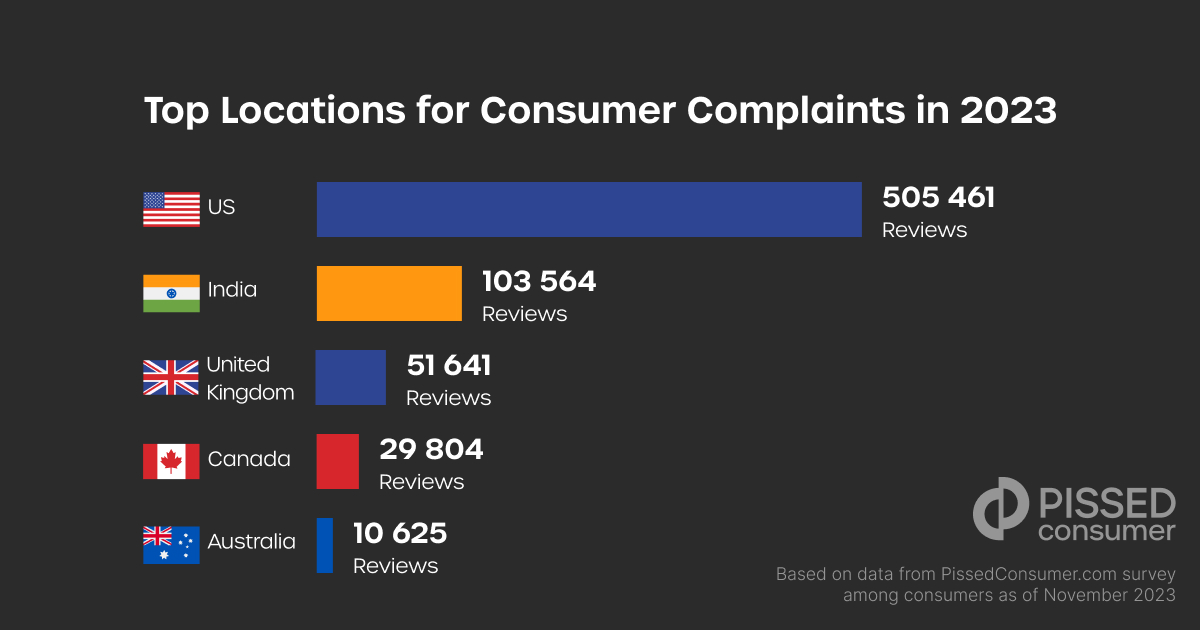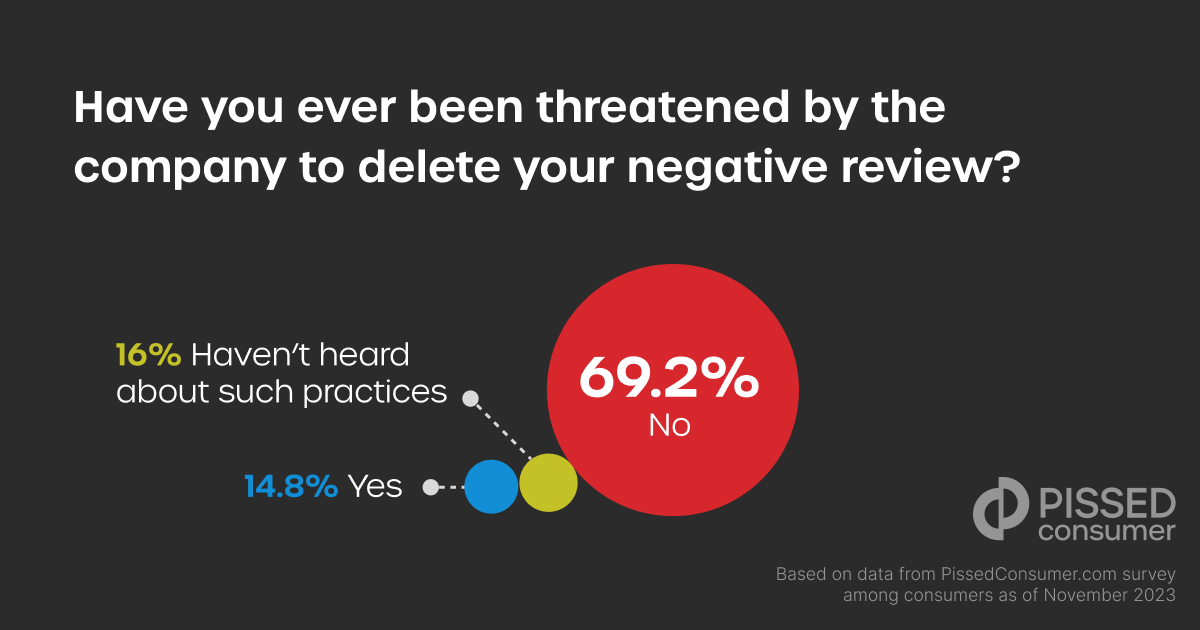Online reviews have become an indispensable tool for consumers, helping them navigate a vast and often overwhelming marketplace. We, at PissedConsumer, a review platform, believe that consumer reviews help others make informed decisions, find quality products and services, and hold businesses accountable for their actions. Thus, we’ve looked through online review trends to learn more about consumer habits, experiences and thoughts, and dive deeper into how online reviews impact their shopping choices.
Online reviews are a cornerstone of modern consumer culture, shaping the way we shop and interact with the products and services around us. The importance of online reviews cannot be overstated, and here are key reasons why they matter so much:
Credibility and Trust: In the PissedConsumer survey, 75.5% of respondents said they trust online reviews. Since reviews from real customers provide an authentic and unbiased perspective on products and services, consumers often trust them more than advertising or marketing materials. Knowing that others have had positive experiences builds confidence in a purchase. Whereas seeing negative feedback can push off from making the purchase, as 72% of surveyed consumers say they won’t buy after seeing negative reviews.

Informed Decision-Making: Online reviews offer a wealth of information that allows consumers to make informed decisions. A staggering 91.1% of consumers say they pay attention to consumers' experience, regardless of whether it’s negative or positive. Shoppers who read online reviews can learn about the pros and cons of a product or service, its quality, durability, and value for money. This information helps consumers align their choices with their specific needs and preferences.
Quality Assurance: Reviews act as a quality control mechanism in the marketplace. In fact, 54.4% of surveyed consumers report trusting a company with a high star rating. When businesses know that their products or services will be rated by customers, it incentivizes them to maintain high standards and continuously improve. This competitive pressure benefits consumers by encouraging better products and services.

Real-World Experiences: Reviews provide insight into real-world experiences with a product or service. Consumers can learn about potential issues, practical uses, and unexpected benefits, and safeguard themselves from an unpleasant experience with the purchase. With 89% of respondents saying that negative reviews impact their purchase decisions, it becomes clear that online reviews serve practical knowledge beyond what a product description or advertisement can convey.

Community and Engagement: Online review platforms create a sense of community among consumers. Notably, when asked about instances when consumers write reviews, nearly 64% of them said they always share experiences. People can write feedback, ask questions, and offer advice to others in reviews. This sense of belonging and engagement enhances the overall shopping experience.
Red Flags: Negative reviews can serve as warning signs. If multiple customers report similar issues or dissatisfaction, it raises red flags for potential buyers. Consumers can avoid making costly mistakes by heeding these warnings.

Continuous Improvement: Businesses can use online reviews as valuable feedback. They gain insights into what works and what needs improvement. Responsiveness to customer feedback can lead to better products, services, and customer satisfaction.
Transparency: The availability of reviews promotes transparency in the marketplace. It encourages businesses to be accountable for their offerings and customer interactions. This transparency fosters a healthier and more ethical business environment.
What about you? Do you believe that online reviews matter? Share your opinion in the comments.